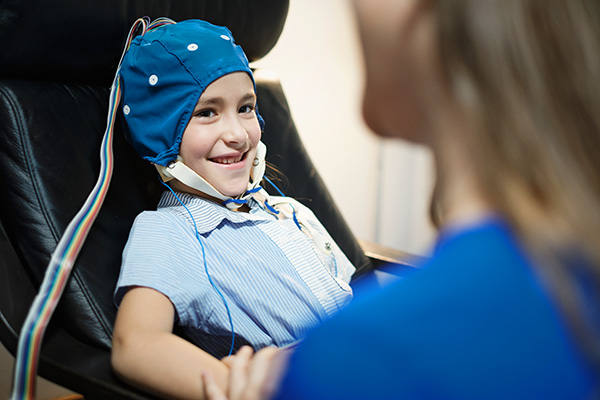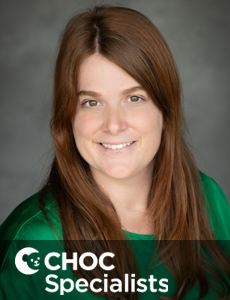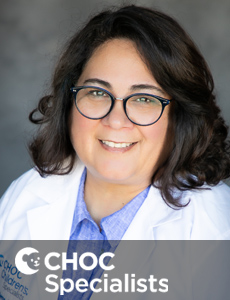See a CHOC movement disorder specialist
Schedule an appointment with a CHOC specialist.

At CHOC, we know caring for a child with a complex movement disorder can feel overwhelming. Our pediatric neurologists and nurse practitioners are trained in treating children with movement disorders and dedicated to optimizing the potential of the kids and adolescents we treat. We partner with your child and family to identify your unique goals of care and deliver individualized treatment to meet your needs.
Movement disorders are a group of neurological conditions that cause involuntary changes in the nature or quality of movement.
Voluntary movements are intentional, like standing up. Movement disorders are involuntary, meaning the movements are not something the child wants to do. Movement disorders can cause movements to be increased, reduced or slower than intended, inaccurate or clumsy, or it can prevent movement altogether.
There are two main types of movement disorders based on the abnormal movement they cause:
Symptoms of movement disorders vary depending on the specific condition causing the abnormal movements. However, some early warning signs could warrant a visit to your child’s doctor. Early warning signs of movement disorders in children include:
Movement disorders in children can be caused by:
To diagnose movement disorders, your child’s doctor needs to classify the condition and determine the underlying cause of the abnormal movement. Our doctors will perform a thorough physical evaluation and a medical and family history for each child. Further diagnostic tests may include:
Treatment for movement disorders will depend on the exact condition, a child’s age and the severity of the disease, but can include:
CHOC is home to one of the nation’s largest pediatric movement disorder groups, with two physicians and two nurse practitioners. With our team of experts and innovative research, CHOC is one of the top hospitals in the nation for treatment of secondary dystonia, including the use of advanced techniques for deep brain stimulation (DBS).
At CHOC, we participate in clinical trials to provide breakthrough treatments for patients who haven’t responded to traditional condition management. Dr. Allison Przekop is currently conducting pharmaceutical clinical trials for treatment of dyskinesia in cerebral palsy in children. Cerebral palsy often has movement disorder symptoms. Read more about the clinical trial.
Dr. Terry Sanger is a renowned physician and research scientist specializing in movement disorders. He runs a pediatric movement disorder lab, in conjunction with UCI, dedicated to identifying new treatments and devices that improve motor function in children suffering from movement disorders. Explore more of Dr. Sanger’s work.
The CHOC Movement Disorder Team includes the providers below, as well as Amanda Kammer, RN, and Cindy Malvaez, medical assistant and financial counselor.

Specialty:
Neurology
Appointments: 888-770-2462
Office: 714-509-7601
Dr. Sanger is board certified in child neurology and treats kids and teens in Orange County.

Specialty:
Neurology
Jennifer MacLean is a nurse practitioner and is a member of the CHOC Specialists who treats kids and teens in Orange County.

Specialty:
Neurology
Office: 714-509-7601
Dr. Allison Przekop is board certified in child neurology and treats kids and teens in Orange County.

Specialty:
Neurology
Appointments: 888-770-2462
Office: 714-509-7601
Teresa Serna-Fonseca is a nurse practitioner and is a member of the CHOC Specialists who treats kids and teens in Orange County.